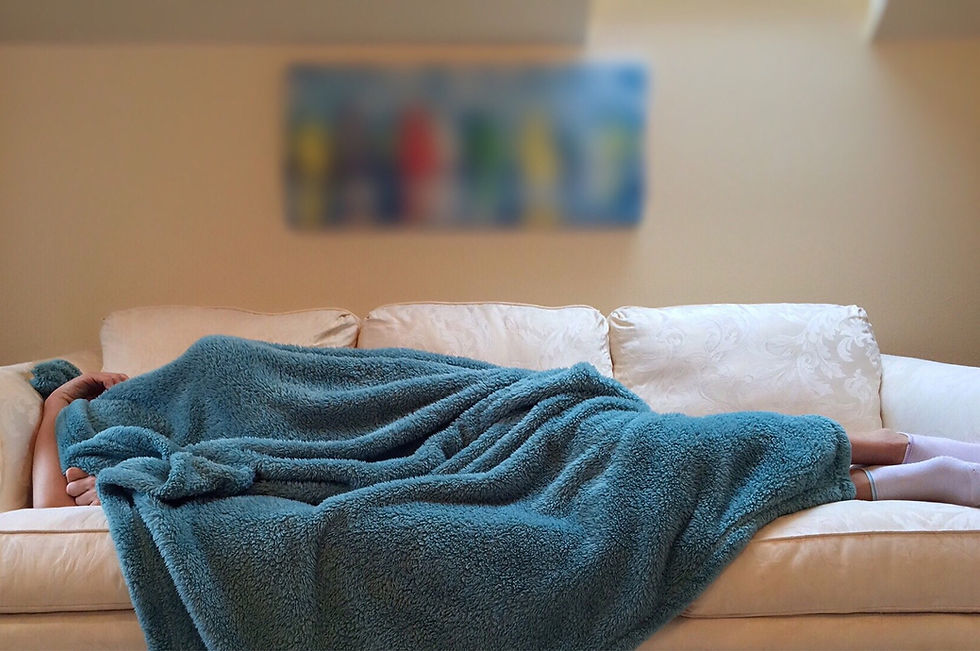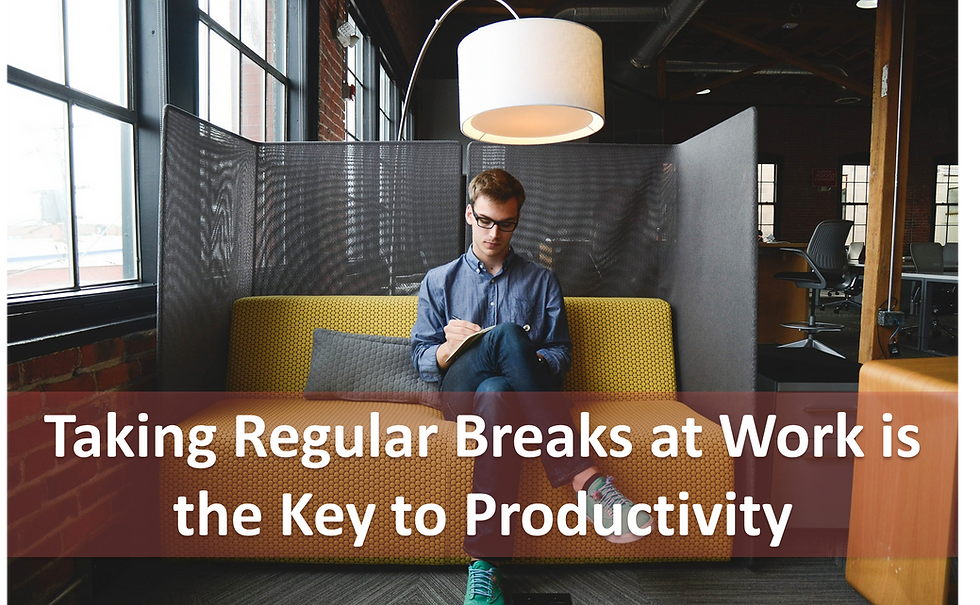How Much Does Your Sleep Quality Impact Your Productivity and Attentiveness
- Shagun Agarwal

- Dec 30, 2016
- 4 min read
Updated: Feb 19, 2023
The importance of proper sleep has always held a prime position in everybody’s life. According to research, the average person will sleep for at least one-third of their life. But, that is, of course, if we are getting enough sleep!
Have you had a less-than-stellar performance review lately?
Are you getting crankier and less productive throughout the day?
Do you daydream during your work, or are you making poor decisions?
Do you feel tired throughout the day or feel emotionally drained?
If the above statements ring true then this blog is meant just for you.

In today's globalized, hyper-connected, and "always-on" working culture, we frequently work longer hours, cutting off our sleep time. Sleep disorders and lack of sleep have become more prevalent than ever before. The number of hours spent on deep sleep has seen a declining trend over the years. According to a study of 4,188 U.S. workers, those who slept less had substantially lower productivity, performance, and safety outcomes, with a $1,967 loss in productivity per worker.
But, what are we gaining by reducing our sleep hours? Hypertension, cardiovascular disease, and cognitive impairment, among other health issues.
I am sure at some point in time you have experienced what lack of sleep can do to your mind and body. Situations such as catching a late-night flight, handling an unexpected workload, stress, and so on can put you at risk of sleep deprivation. Sleep deprivation not only impairs memory and cognitive functioning including the potential to process information but also affects work quality and performance to a great extent.
A sleep-deprived employee will find it difficult to stay focused in meetings, take longer time to complete work, be unable to control their actions and reactions causing outbursts and moody behaviors, and find it difficult to produce fresh ideas. Sleep deprivation also leads to a loss of focus and lower creative abilities, as well as a decreased drive to learn and less ability to manage competing demands. Moreover, these employees who are sleep deprived will find it difficult to communicate and cooperate with other team members which will eventually lead to a negative impact on the organization’s culture and work relationship between the workers.
One research study, named Neurocognitive Consequences of Sleep Deprivation, published in the year 2009 evidenced that lack of sleep gives way to lack of attention. It says that lack of sleep makes us enter a state where the person is neither fully awake nor asleep. Another study showed that decreasing sleep time by just 1.5 hours can reduce alertness the next day by a massive 32%.
Most individuals associate losing sleep with having more time to enjoy the day or get things done, according to Matthew Carter, Ph.D., a sleep specialist at Williams College. Ironically, when they are sleep deprived, they enjoy the day less and are so unfocused that they are significantly slower to accomplish things.
If sleep deprivation is a major problem, then what is the collective response to it? Carter says, if we see a group of people smoking on a regular basis, we think they have a bad smoking habit. If we observe a number of people consuming junk food on a regular basis, we assume that they have a bad diet. But when we see a group of people who are exhausted, we simply conclude that they are working hard or have a difficult job.
Researchers have inferred that Sleep = Productivity. But, the question that arises here is how many numbers of hours constitute an optimum number of hours for the perfect day, full of energy, mental alertness, and optimum productivity levels?
Daniel Kripke, co-director of research at the Scripps Clinic Sleep Center in La Jolla, California has thrown some light on this topic. During one of his research studies, he found that a 6.5 to 7.5-hour sleep is the most ideal. These people are the most productive, happy, and live the longest.
So, how can you improve your sleep? Below are some tips.
1. Maintain a consistent bed and wake time pattern, including weekends.
2. Set up a consistent, peaceful night routine, such as taking a hot bath followed by reading a book or listening to some calming music.
3. Make your sleeping environment dark, quiet, pleasant, and cool.
4. Sleep on a soft, supportive mattress with soft pillows. Check to see if they are allergen-free.
5. Finish your meal at least two to three hours before your normal bedtime.
6. Exercise on a regular basis. It is preferable to finish your workout at least a couple of hours before going to bed.
7. Avoid caffeine-containing beverages such as coffee, tea, soda, and chocolate before going to bed.
8. Avoid nicotine, which is contained in cigarettes and other tobacco products, prior to bedtime.
9. Avoid drinking alcohol before sleeping. Although many individuals associate alcohol with sedation, it actually affects sleep and causes night-time awakenings.
Conclusion:
The above are certain scientifically proven numbers. However, these may differ as per your lifestyle, interests, and body type. Whatever the number of hours and sleep patterns works for your body and mind, just make sure that you are rested enough before you start your day. Our mental and physical batteries need to be charged before we head to work. Your lifestyle affects not only your productivity but also your peers’ and sleeping well can surely help you with living an energetic and productive life.
.png)



Comments